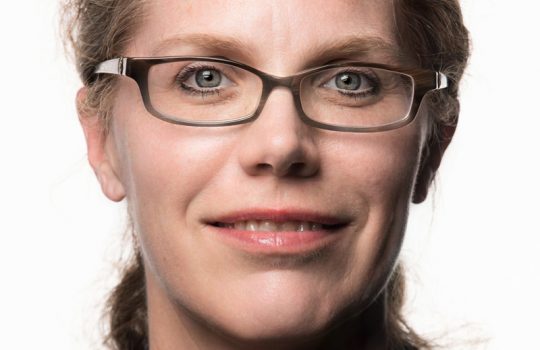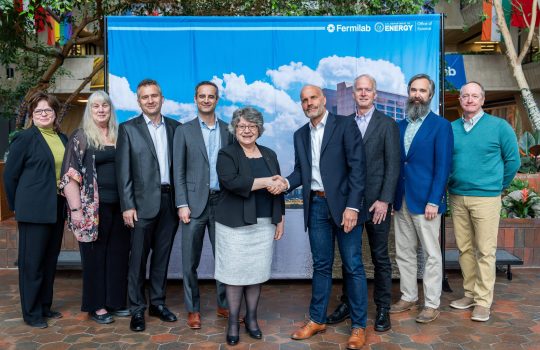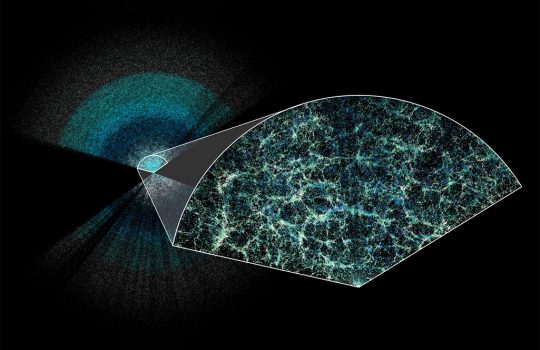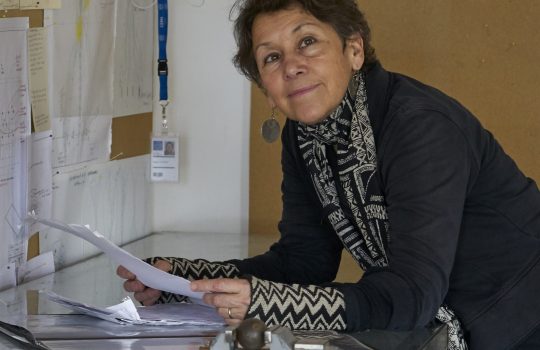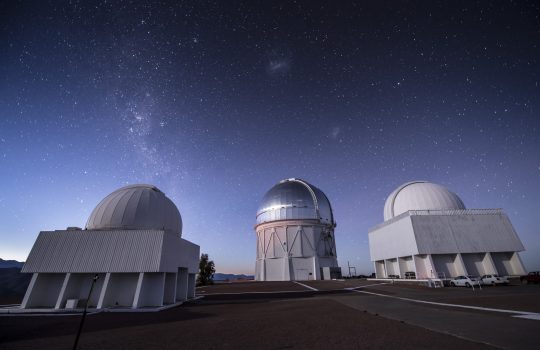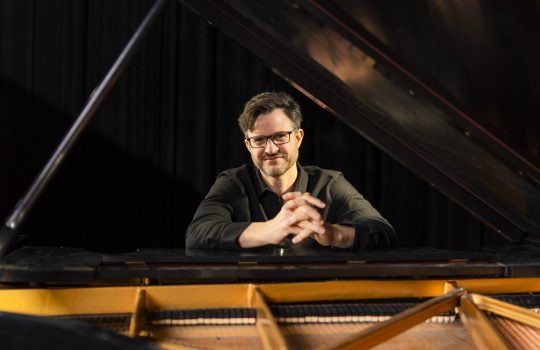Fermilab names Jim Kerby as LBNF/DUNE-US project director
Fermi National Accelerator Laboratory announced Jim Kerby as project director for Long-Baseline Neutrino Facility for the Deep Underground Neutrino Experiment (LBNF/DUNE-US) He will be responsible for managing all aspects of the project in the U.S. as Fermilab leads the execution of the largest international DOE project ever hosted on U.S. soil.
Fermilab announces new chief operating officer
Leadership appointment enhances team at Fermilab with extensive operations experience.
Double delivery of baby bison at Fermilab today
Spring brings new life to Fermi National Accelerator Laboratory as calving season begins for the lab’s herd of American bison. Today, two bison calves were born at Fermilab. The lab has a long tradition of providing habitat for bison, connecting particle physics research to the Midwestern prairie. This season, 20 baby bison are expected.
Fermilab’s Bonnie Fleming newly elected to the American Academy of Arts & Sciences
Fermilab’s Chief Research Officer Bonnie Fleming has been elected to the prestigious American Academy of Arts & Sciences, honoring excellence and leadership throughout her science career.
New collaboration sheds bright light on advancing semiconductor production in the U.S.
A partnership between Fermilab and xLight Inc. will focus on producing advanced semiconductors in the United States using extreme ultraviolet light and accelerator technology.
First results from DESI make the most precise measurement of our expanding universe
Researchers have used the Dark Energy Spectroscopic Instrument to make the largest 3D map of our universe and world-leading measurements of dark energy, the mysterious cause of its accelerating expansion.
New media artist and educator Agnes Chavez named 2024 guest artist
New Mexico-based artist Agnes Chavez will work with scientists at Fermilab to explore new ways to use data visualization, light, sound and space to communicate the importance and relevance of science, in particular research on particles called neutrinos.
New measurement of cosmic distances in the Dark Energy Survey gives clues about the nature of dark energy
The Dark Energy Survey has measured the BAO scale when the universe was half its present age with an accuracy of 2%, the most accurate determination yet at such an early epoch. It is the first time an imaging-only measurement is competitive with large spectroscopy campaigns specifically designed to detect this signal.
Accomplished composer and pianist Mischa Zupko from Chicago named 2024 guest composer
Mischa Zupko, adjunct faculty member of the School of Music at DePaul University, will collaborate with scientists at Fermilab and members of the Chicago-based Civitas Ensemble to create music based on scientific models in particle science.
Excavation of colossal caverns for Fermilab’s DUNE experiment completed
The excavation of the caverns that will house the gigantic particle detectors of the Deep Underground Neutrino Experiment in Lead, South Dakota is complete. Final outfitting of the colossal caverns will begin soon and make way for the start of the installation of the DUNE detectors later this year.




